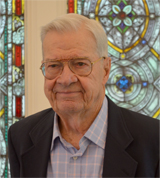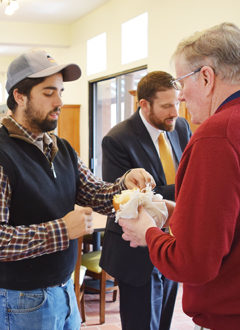ABOUT CHARITABLE BEQUEST
A charitable bequest is one of the easiest and most flexible ways that you can leave a gift that will make a lasting impact to Union Presbyterian Seminary.
Benefits of a Bequest
- Receive an estate tax charitable deduction
- Reduce the burden of taxes on your family
- Leave a last legacy to Union
Click here to review sample bequest language
How a Bequest Works
A bequest is one of the easiest gifts to make. With the help of an attorney, you can include language in your will or trust specifying a gift to be made to family, friends or Union Presbyterian Seminary.
- A bequest costs nothing now, yet gives you the satisfaction of knowing you have provided for Union’s future.
- You retain control and use of your assets during your lifetime.
- You may modify your bequest if your circumstances change.
- Gifts from your estate may be exempt from federal estate taxes.
Some ways to leave a bequest to Union Presbyterian Seminary
- Include a bequest to Union in your will or revocable trust.
- Designate Union as a full, partial or contingent beneficiary of your retirement account (IRA, 401(k), 403(b), or pension)
- Name Union as a beneficiary of your life insurance policy
A bequest may be made in several ways
- Percentage Bequest – make a gift of a percentage of your estate
- Specific Bequest – make a gift of a specific dollar amount or a specific asset
- Residual Bequest – make a gift from the balance or residue of your estate
Contact Us
If you have been so generous as to include a bequest to Union Presbyterian Seminary as part of your estate plan, please take the time to let us know. We would like to recognize you and your family for your generosity.
–
The information on this website is not intended as legal, financial, or tax advice. Please consult an attorney, financial advisor or tax advisor in your planning.
Related Story
 Finishing the Work with a Bequest Posted in: A Gift in Your Will - The son and grandson of Presbyterian ministers, Price Gwynn’s church service dated to his family’s residency on Union’s campus in 1926. He played a significant role in the creation of Union’s Charlotte campus. Read More
Finishing the Work with a Bequest Posted in: A Gift in Your Will - The son and grandson of Presbyterian ministers, Price Gwynn’s church service dated to his family’s residency on Union’s campus in 1926. He played a significant role in the creation of Union’s Charlotte campus. Read More


